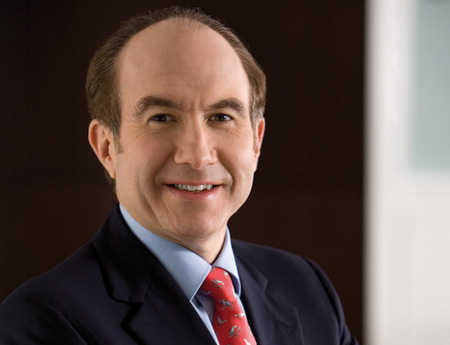Dollar Signs Seen in Viacom Deal With Sony

The smarter way to stay on top of broadcasting and cable industry. Sign up below
You are now subscribed
Your newsletter sign-up was successful
Related: Report: Media Business Is Among the Most Profitable
Media Company CEOs last week said they saw a new money-making opportunity in Internet-based TV services being prepared to launch by Sony and Dish Network.
Viacom announced last week—on the day Goldman Sachs’ 23rd Annual Communacopia Conference opened in New York City—that 22 of its networks would be carried by Sony’s cloud-based service.
At the conference, Viacom CEO Philippe Dauman declined to provide many details about the Sony service beyond what was in press releases. But he said virtual multichannel video program distributors would become an important category for content creators.
“We need to do better in giving consumers what they want,” Dauman said. “Give the consumers what they want and it will benefit every party in the ecosystem.”
Sony’s service will be available on its Bravia- connected TV sets and PlayStation game consoles. “We’re so important to players like Sony and everybody else looking at these new kinds of services, because of our young demos and our insights into what content they enjoy and how they enjoy experiencing content,” Dauman said. “They’re spending a lot of time with gaming devices. So to be able to offer this content on devices they already enjoy is another exciting part of doing this with Sony.”
Dish Network is also looking to set up an Internet TV service, and has already signed up Walt Disney Co. and A+E Networks as distributors seek services that will appeal to younger consumers and other cord-cutters.
The smarter way to stay on top of broadcasting and cable industry. Sign up below
Discovery CEO David Zaslav noted that early movers, such as Disney’s ESPN, appeared to get good deals from the new distribution systems. “They got more channels carried on [Dish Network Chairman Charlie Ergen’s] existing platform. They got a renewal, and then they got a deal on the over-the-top that was constrained in some ways to protect that from spilling over to the traditional piece.”
Zaslav said that the new virtual MVPDs would help Discovery because it means more people want to buy its content. “We’re very platform agnostic. It will be a good thing in the near term because we’ll get more money,” he said.
Over the longer term, if these Internet video services become a big way people watch TV, the economic prospects are less clear. “The good news on that is we can work hard to see that the commercials aren’t skipped and make sure they get measured. So like TV Everywhere, it becomes another platform where we can have a dual revenue stream.”
CBS CEO Leslie Moonves said his company has had a lot of conversations about new platforms. “You will see us participate in a number of these as they go forward,” he said. “They’re going to have to have CBS; they’re going to have to have Showtime.” Moonves noted that whenever a new distribution system arrives, the price of content goes up, “so we welcome them and we’ll be a part of it.”
In response to a question about what happens to TV affiliates if CBS streams its network programming over the Internet, Moonves said, “Anything we would do with these guys, they’d be part of it. This is not, ‘Let’s build the network and screw the affiliates.’ Remember, we own affiliates in 40% of the country on our own. So the idea is to work hand in hand with them and make it beneficial for everyone.”
Jon has been business editor of Broadcasting+Cable since 2010. He focuses on revenue-generating activities, including advertising and distribution, as well as executive intrigue and merger and acquisition activity. Just about any story is fair game, if a dollar sign can make its way into the article. Before B+C, Jon covered the industry for TVWeek, Cable World, Electronic Media, Advertising Age and The New York Post. A native New Yorker, Jon is hiding in plain sight in the suburbs of Chicago.

